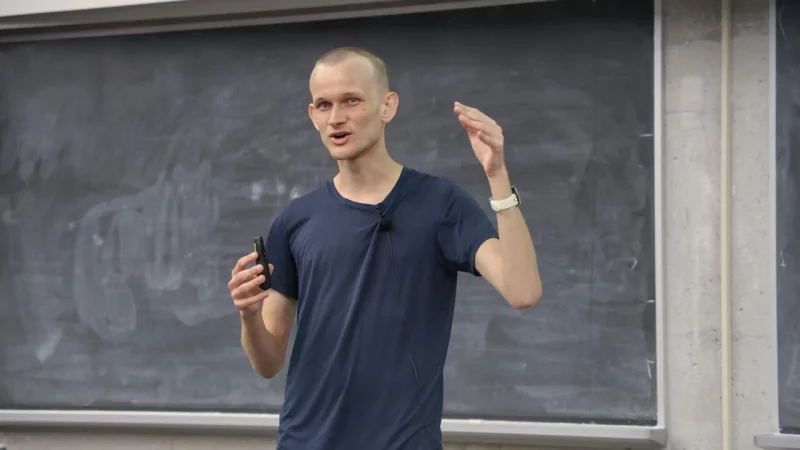Key takeaways
- Vitalik Buterin proposes reducing the Ethereum validation threshold from 32 ETH to 1 ETH.
- The proposal includes a “single-location finality” feature to speed up block confirmations.
Share this article
Ethereum co-founder Vitalik Buterin has propose a significant update to Ethereum’s proof-of-stake consensus mechanism, suggesting that the validator block threshold be reduced from 32 ETH to 1 ETH.
According to Buterin, “lowering the minimum stake to 1 ETH would solve the problem that prevents more people from staking solo,” thereby democratizing staking and strengthening Ethereum’s decentralization.
Currently, Ethereum requires 32 ETH to become a validator, a limit designed to balance security, decentralization, and overhead.
Buterin’s new proposal, however, argues that this high threshold poses an obstacle for small participants and individual investors, who want to contribute to the security of Ethereum but cannot afford significant blockage.
Reducing the threshold to just 1 ETH would significantly lower the barrier to entry, encouraging more solo stakers to join the network and potentially reducing centralization of staking. Buterin believes this will align with Ethereum’s long-term vision of being accessible to a wider range of users.
One of the challenges of this threshold reduction is maintaining efficiency without overloading the network. Buterin pointed out that lowering the threshold would increase the number of validators, which could potentially slow down finality or increase the operational costs of running a node.
To address this issue, Buterin also proposes the concept of “single-slot finality,” which would speed up block confirmation, reducing finalization times from the current 15 minutes to around 12 seconds.
This would not only improve user experience but also ensure that Ethereum security remains robust even with an increased number of validators.
The Ethereum community has long debated the accessibility of staking. Many individual bettors have expressed frustration with the 32 ETH requirement, and Buterin’s proposal could be a game-changer by empowering smaller participants. However, implementation will require extensive testing and research to ensure that network stability is not compromised.
If this proposal is approved, it could usher in a new era of decentralization for Ethereum, potentially allowing thousands more validators to join the network with just 1 ETH.
Share this article




